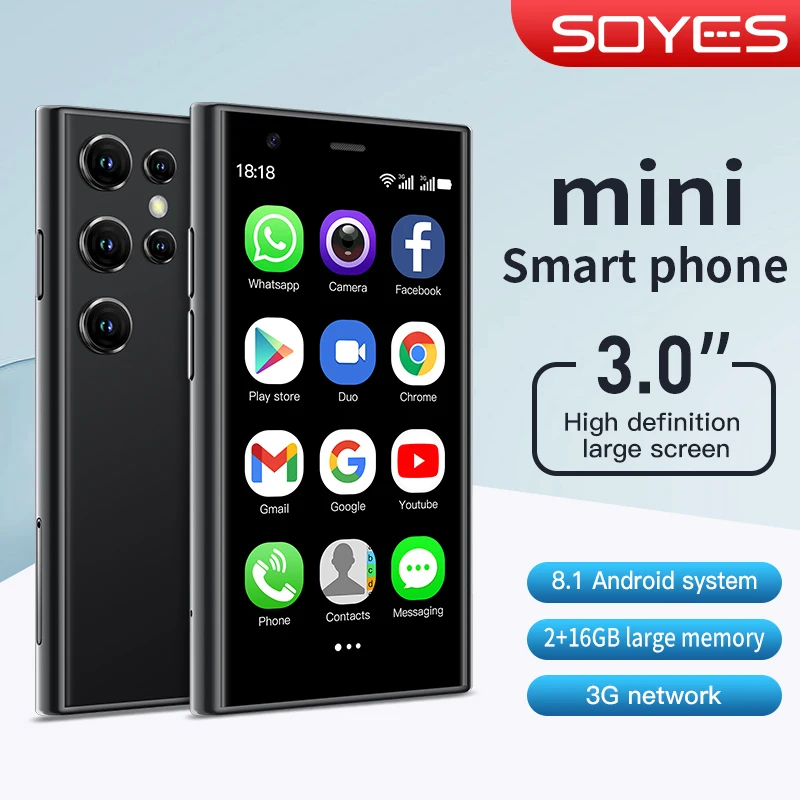Experiencing slow internet on your Android phone can be incredibly frustrating, especially when you need to stay connected for work, streaming, or communication. There are several potential causes for sluggish internet speeds, and addressing them requires a methodical approach. This article explores various troubleshooting tips and solutions to help you diagnose and fix slow internet issues on your Android device.
Understanding Internet Speed and Performance
What Affects Internet Speed?
Internet speed is influenced by multiple factors, including network congestion, signal strength, and the quality of your connection. On your Android phone, both Wi-Fi and mobile data can experience slowdowns due to different reasons. Wi-Fi networks may be impacted by interference, distance from the router, or bandwidth limitations, while mobile data speeds can be affected by signal strength, network congestion, or carrier limitations. Understanding these factors is crucial to effectively addressing slow internet issues.
How to Check Your Internet Speed
To diagnose slow internet problems, start by checking your internet speed. You can use speed test apps available on the Google Play Store, such as Ookla’s Speedtest or Fast.com. These apps measure your download and upload speeds, as well as latency. Comparing your results to your internet plan’s promised speeds can help identify if there’s a discrepancy. If your speeds are significantly lower than expected, it may indicate a problem that needs further investigation.

Troubleshooting Wi-Fi Connectivity Issues
Reboot Your Router and Phone
One of the simplest yet effective troubleshooting steps is to reboot your router and Android phone. Sometimes, connectivity issues arise from temporary glitches that a restart can resolve. Turn off your router, wait for about 30 seconds, and then turn it back on. Similarly, restart your Android phone by holding down the power button and selecting “Restart.” This can help refresh your connection and potentially improve your internet speed.
Check for Interference
Wi-Fi performance can be affected by interference from other electronic devices, physical obstructions, or even neighboring Wi-Fi networks. Devices such as microwaves, cordless phones, and Bluetooth gadgets can disrupt your Wi-Fi signal. Ensure that your router is placed in a central location away from such devices and large objects like walls or furniture. Additionally, using a Wi-Fi analyzer app can help identify the best channel for your network, reducing interference from other nearby networks.
Optimizing Your Wi-Fi Connection
Update Router Firmware
Outdated router firmware can lead to performance issues, including slow internet speeds. Router manufacturers periodically release firmware updates that can improve performance, security, and stability. Access your router’s settings through a web browser (typically by entering the router’s IP address) and check for any available updates. Follow the manufacturer’s instructions to update the firmware and ensure your router is running the latest version.
Adjust Wi-Fi Settings
Your router’s settings can also impact your Wi-Fi performance. Access your router’s settings and check if the channel width is set to the optimal level (typically 20 MHz or 40 MHz for 2.4 GHz networks and 80 MHz for 5 GHz networks). Additionally, ensure that your router is broadcasting on both the 2.4 GHz and 5 GHz bands, as the 5 GHz band generally offers faster speeds and less interference. Experimenting with different channels and settings can help improve your Wi-Fi connection.
Diagnosing Mobile Data Issues
Check Signal Strength and Coverage
Mobile data speeds are heavily influenced by signal strength and network coverage. Check the signal bars on your Android phone to ensure you have a strong connection. If you’re in an area with poor reception, consider moving to a location with better coverage. Additionally, some areas may experience network congestion, especially during peak times. If possible, test your mobile data speed in different locations and times to identify any patterns related to slow performance.
Verify Your Data Plan and Carrier
Your mobile data plan and carrier can also affect internet speeds. Ensure that you have not exceeded your data limit, as many carriers throttle speeds when usage exceeds the plan’s threshold. Review your plan details and contact your carrier if you suspect that throttling is occurring. Additionally, consider whether your carrier’s network is experiencing any issues or outages that might impact your connection. Checking with your carrier can provide insights into any ongoing problems.

Managing Android Device Settings
Clear App Cache and Data
Cached data from apps can accumulate over time and impact your device’s performance, including internet speed. Go to your device’s settings, navigate to “Apps,” and select the app that is experiencing slow internet issues. Tap on “Storage” and choose “Clear Cache” or “Clear Data” to remove temporary files that might be causing slowdowns. Regularly clearing cache and data can help maintain optimal performance for your apps and internet connection.
Disable Background Apps and Processes
Background apps and processes can consume bandwidth and slow down your internet speeds. Access your device’s settings and navigate to “Apps” or “Battery” to view which apps are running in the background. Close or disable any apps that are not in use, and consider restricting background data usage for specific apps. This can help free up bandwidth and improve your overall internet performance.
Updating and Securing Your Android Device
Update Your Android Operating System
Running an outdated version of Android can lead to performance issues, including slow internet speeds. Ensure that your device’s operating system is up to date by checking for system updates in your device’s settings under “System” or “Software Update.” Updates often include performance improvements and bug fixes that can enhance your device’s connectivity and overall functionality.
Secure Your Device from Malware
Malware and malicious apps can negatively impact your internet speed and overall device performance. Install a reputable mobile security app to scan for and remove any potential threats. Regularly update your security software and avoid downloading apps from untrusted sources to protect your device from malware that could affect your internet connection.
Seeking Professional Help
Contact Your Internet Service Provider
If you have tried all the troubleshooting steps and your internet speed remains slow, it may be time to contact your internet service provider (ISP). Your ISP can run diagnostics on your connection and check for any issues that might be affecting your speeds. They can also provide guidance on potential upgrades to your plan or equipment if necessary.
Visit a Professional Repair Service
In some cases, slow internet issues may be related to hardware problems with your Android device. If you suspect that there may be a hardware issue, such as a malfunctioning Wi-Fi antenna or modem, consider visiting a professional repair service. A technician can perform a thorough inspection and address any hardware-related problems that might be impacting your internet performance.
Optimizing Mobile Data Usage
Enable Data Saver Mode
Android devices come with a built-in Data Saver mode that can help manage and reduce data usage. This mode limits background data usage and restricts app activity, which can enhance overall performance and speed. To enable Data Saver, go to “Settings,” then “Network & Internet,” and select “Data Saver.” Toggle the switch to activate it and customize which apps are allowed to use data in the background.
Switch to a Different Network
If you’re experiencing slow mobile data speeds, consider switching between 4G and 5G networks if your device supports it. In some cases, one network may offer better performance than the other based on your location and network conditions. Go to “Settings,” then “Network & Internet,” and select “Mobile Network” to change the network type. Testing different networks can help you find the best option for your current situation.

Conclusion
Slow internet speeds on your Android phone can stem from a variety of factors, including Wi-Fi connectivity issues, mobile data problems, and device settings. By systematically troubleshooting each potential cause and applying the recommended solutions, you can often resolve the issue and restore your internet speed to an acceptable level. Regular maintenance, such as updating your device and managing app usage, can also help prevent future slowdowns and ensure a smoother internet experience. If all else fails, seeking professional assistance from your ISP or a repair service can provide further support and solutions.


